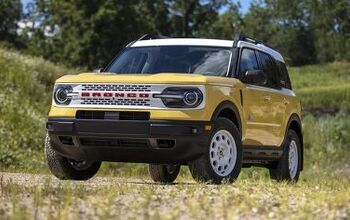Nissan Exec: Uber, Not Tesla, a Bigger Threat

John Martin, Nissan North America’s senior vice president of manufacturing and supply chain management, had some harsh words for Tesla on Friday. According to him, Uber — not Tesla — is the real disruptor, and what Tesla is doing now is relatively easy, Automotive News reported.
“Lot’s of people are calling Tesla a disrupter. They are not,” he said while arguing that building a performance vehicle that’s priced over $100,000 is much easier than manufacturing an electric car for under $30,000.
And what about Apple and Google? Martin doesn’t foresee either of them getting into the auto manufacturing business anytime soon.
The reason: The profit margin in building cars is too low to interest the technology giants. While cars typically return 10-percent margins, those companies are used to 30 to 40-percent margins from their products.
But, Martin really drove home his view on Tesla.
“People ask me: ‘When are you going to compete with Tesla?’ And I ask them, ‘When is Tesla going to compete against me?’”
As for Uber, Martin sees them as a bigger threat as they are a service provider with significantly lower costs than a manufacturer. Uber is mixing it up in the taxi space and pushing the taxi industry as a whole to evolve.

More by Mark Stevenson


































Comments
Join the conversation
Q: "When is Tesla going to compete against me?" A1: Now, because Tesla's $75-140k cars are outselling your $35k Leafs. A2: 2018, and I might be first in line for a Model 3. (Former Leaf driver).
SCE to AUX - your comment does illustrate the failure of EV's to penetrate the car market in any significant volumes. People who want to save the world and buy 35k Leaf EV's most likely can afford the 75-140k Tesla. If I'm in the market for a compact/subcompact commuter urban runabout I'd rather get a Micra for 10k or Versa for 14k. The majority or buyers are going to be very price sensitive.
Completely agree, Tesla is not a disruptive innovator, it is an evolutionary innovator. ...An innovation that improves a product in an existing market in ways that customers are expecting... Automobiles already exist. Electric powered cars have existed for more than a century. Modern production electric cars were built a few times since the 70s - the failed EV-1 the most current example (just because it failed, doesn't mean it doesn't count on the historical timeline). Tesla is not creating a new market for automobiles - they've improved upon it. Uber on the other hand is a disruptive innovation. Uber has created a new market in on-demand transportation (along with Lyft) that could overtake the existing markets (traditional taxi and livery business model) and make it obsolete. One could argue that the horseless carriage was an evolutionary innovation. The development of mass production of the automobile, instead of hand built coaches, was the disruptive innovation that enabled putting an automobile in every garage, ending the horse drawn era.
Fascinating. A while back posters on this web site were hoping the large Ford rear drive cars with V8s and stick shifts would stay around. Now many of the posters are assuming Uber, (far simpler) electric cars, and autonomous drive are inevitable. I like the change in what posters here are writing My electric car doesn't drip fluids and my garage is cleaner. In a few years when I need a new car battery the old battery will still have enough capacity to be used for home energy storage.